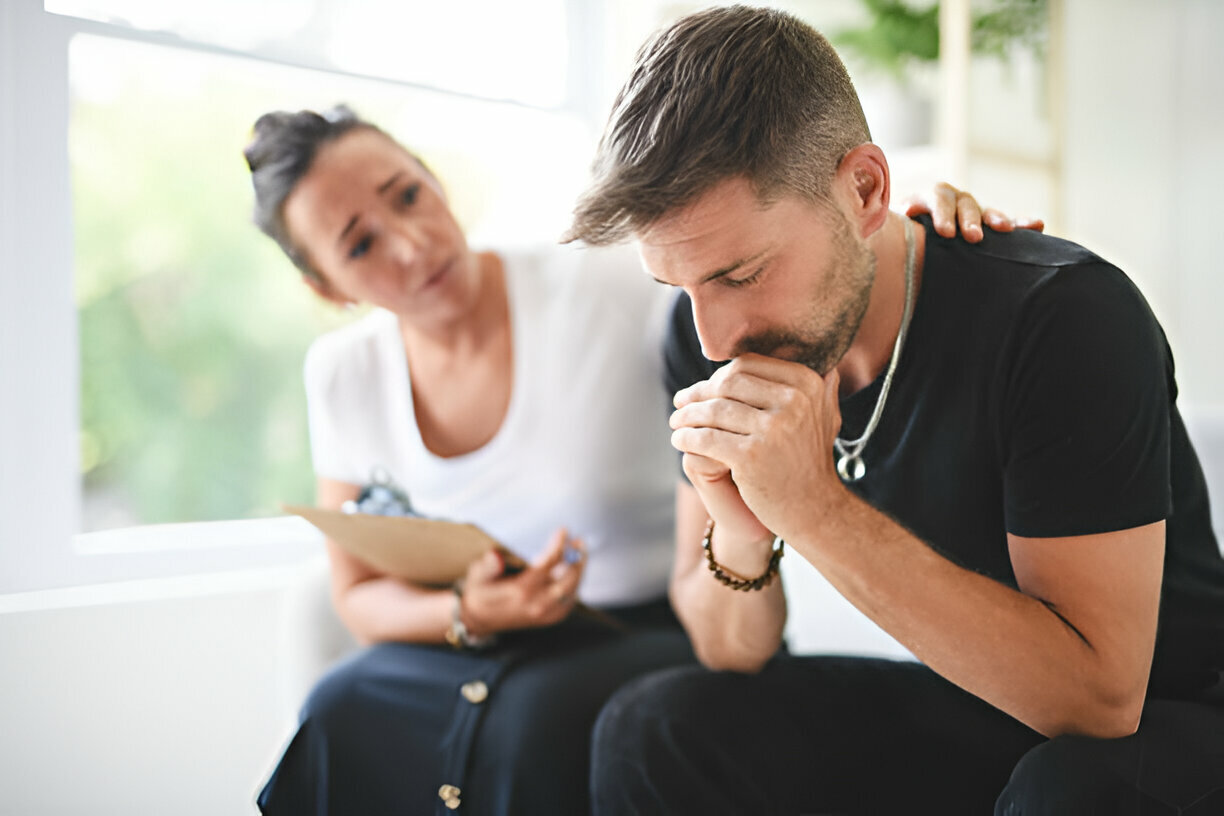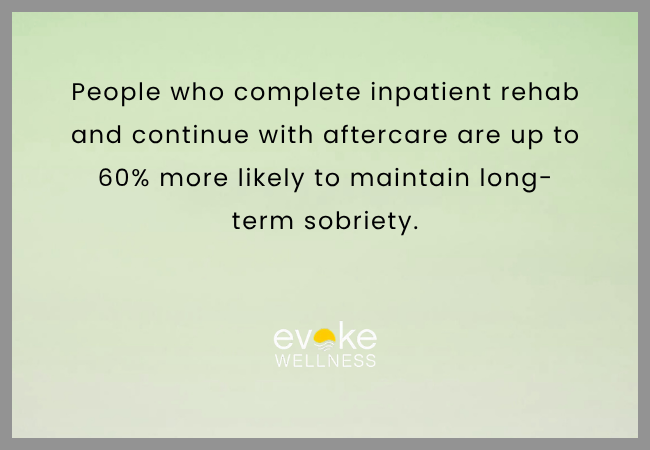The decision to enter inpatient rehab is often a life-changing turning point for those struggling with addiction or co-occurring mental health disorders. It marks a commitment to healing—not just physically, but emotionally, psychologically, and spiritually. Still, many people hesitate to take this step because they don’t know what to expect. Understanding what daily life is like inside a structured, therapeutic environment can offer reassurance and clarity.
This detailed look at a typical day in inpatient rehab at Evoke Wellness at Cohasset will walk you through what clients may experience, from morning routines to nightly reflections. It’s a journey of structure, support, and transformation.
Morning: Grounding the Day with Structure and Purpose
Days in inpatient rehab are designed to begin with consistency and calm. Most clients wake up early, around 7:00 AM. The morning starts with personal hygiene routines and time to get ready for the day. A healthy breakfast is served shortly after wake-up, usually in a communal dining area where clients gather and begin their day together in a supportive environment.
After breakfast, clients often attend a brief mindfulness session, meditation, or guided breathing exercise. This grounding practice helps center the mind and sets the tone for the rest of the day. Many clients find that this time becomes one of the most valuable aspects of their treatment, allowing them to connect to the present and manage anxiety.
Next comes the first therapeutic group of the day. This might be a process group, where clients discuss their experiences, emotions, and progress, or a psychoeducational group that focuses on understanding addiction, relapse prevention strategies, and the science behind recovery. Group sessions are facilitated by licensed therapists or clinical professionals trained to guide meaningful and safe discussions.
Midday: Engaging the Mind and Body in Recovery
Lunch is served around noon and provides another opportunity for social connection in a structured and respectful setting. Meals are designed with nutrition in mind, helping to repair the body from the nutritional deficits caused by substance use.
After lunch, the afternoon schedule typically includes more therapy—this could be an individual counseling session or a specialized group like cognitive-behavioral therapy (CBT), dialectical behavior therapy (DBT), or trauma-informed therapy. Some clients may have dual diagnoses, and therapy will reflect their individualized needs. Those participating in a mental health treatment center in Massachusetts benefit from integrated care that addresses both mental health and substance use concurrently.
Beyond therapy, the afternoon often includes time for wellness activities such as yoga, art therapy, journaling, or nature walks, depending on the facility’s amenities and location. These therapeutic recreational opportunities provide balance and allow clients to express themselves creatively, release stress, and build self-awareness.
Late Afternoon: Reflection and Continued Growth
Later in the day, clients may attend another group session, focusing on relapse prevention, healthy communication, or family dynamics. This time may also include educational programming that builds life skills, such as financial literacy, resume building, or nutrition.
For many, entering an intensive inpatient program in Massachusetts represents a shift in how they relate to structure and accountability. The daily schedule is not rigid to control, but to provide a healing rhythm that many clients lacked in active addiction. As clients learn to maintain a schedule, they build confidence in their ability to reenter the world with greater stability and purpose.
Free time is occasionally built into the late afternoon schedule. During this time, clients can write in journals, connect with peers, read, or simply rest. Supervised visitation or phone calls with family may also be scheduled during this window, helping clients maintain important relationships in a healthy and controlled environment.
Evening: Winding Down and Reconnecting with Purpose
Dinner is shared with peers and often followed by a community meeting or reflection session. This is a chance to debrief the day, share challenges and successes, and reinforce the sense of camaraderie within the group.
Spiritual or 12-step meetings may also be offered in the evening, depending on the client’s preferences and beliefs. These are typically optional but encouraged as part of a holistic recovery model. For many, these meetings provide the spiritual nourishment and peer encouragement that bolster internal motivation.
Bedtime is usually set around 10:00 PM to ensure everyone gets adequate rest, which is essential in early recovery. Clients may use the last hour of the day to read, meditate, or engage in calming routines to prepare for sleep. Recovery is demanding, and physical rest is a crucial element of healing.
Integrated Medical Support and Holistic Healing
Throughout the day, medical staff remain on-site to monitor health and administer any necessary medications. This is particularly important for individuals in early recovery or those who recently completed detox. Medical care ensures that health concerns are addressed promptly and safely.
Clients who have recently transitioned from an alcohol detox treatment center in Massachusetts are often closely monitored to manage any lingering withdrawal symptoms or complications. This continuity of care is a key element of inpatient rehab, ensuring that clients don’t face their recovery alone or without resources.
Supportive Community and Peer Connection
Peer support is one of the most powerful components of inpatient rehab. Clients build meaningful relationships with others who are navigating similar struggles and milestones. These connections help reduce shame, foster empathy, and create an environment of mutual encouragement.
Being surrounded by others on a similar path offers both accountability and companionship. In many cases, the bonds formed in rehab continue after treatment ends, serving as an informal support network for long-term recovery.
Comprehensive Care Tailored to Individual Needs
No two people are the same, and no two recovery journeys are identical. At a residential treatment center in Massachusetts, treatment plans are personalized, taking into account the client’s substance use history, mental health needs, family dynamics, and personal goals.
While the daily structure may look similar for most clients, the content and approach of therapy sessions vary widely to meet each person where they are. This flexibility ensures that every client receives the specific tools, education, and support they need for successful long-term recovery.
Why Choose Us?
At Evoke Wellness at Cohasset, we understand that selecting the right inpatient rehab program can be overwhelming. What sets us apart is our commitment to excellence, compassion, and personalized care. Our facility is designed to provide comfort, safety, and healing for those beginning their recovery journey.
As a luxury rehab center Massachusetts residents trust, our amenities reflect a deep respect for the dignity and comfort of our clients. Private rooms, nutritious meals, peaceful surroundings, and holistic wellness services are all part of the healing experience. But beyond physical comfort, our strength lies in the dedication of our team. From therapists to medical professionals to support staff, everyone here is aligned in the mission of helping you heal, grow, and reclaim your life.
Conclusion
Choosing inpatient rehab is not just about getting sober—it’s about laying a foundation for a new way of life. The structure, support, and intensive care available in an inpatient setting provide the ideal environment for true, sustainable recovery.
At Evoke Wellness at Cohasset, we believe in meeting you where you are and walking with you every step of the way. Recovery may start with treatment, but it doesn’t end there. It’s a lifelong journey, and we’re here to help you begin it with strength, clarity, and purpose.
If you or someone you love is considering inpatient treatment and wants to learn more about what a typical day entails, reach out to our team. Call us today at 866.931.6429 to take the first step toward a healthier, more fulfilling life.
Frequently Asked Questions (FAQs)
What time does the daily schedule begin in inpatient rehab?
Most inpatient rehab programs start the day around 7:00 AM. Clients begin with hygiene routines and breakfast, followed by structured therapeutic and wellness activities.
Are individual therapy sessions included in the daily schedule?
Yes, individual counseling sessions are typically part of the weekly schedule. These sessions provide a private space to explore personal issues and recovery goals.
Can I receive medical care during inpatient rehab?
Absolutely. Inpatient rehab includes on-site medical support to manage medications, monitor withdrawal symptoms, and ensure overall health throughout treatment.
How is free time managed in a structured rehab program?
Clients have some scheduled free time for journaling, resting, or engaging in creative or wellness activities. This balance supports emotional regulation and self-discovery.
Are meals and nutrition part of the recovery process?
Yes, nutritious meals are a key part of recovery. They help repair the body and stabilize mood, often guided by dietary professionals familiar with addiction recovery needs.
What kind of therapy groups are offered?
Common group therapies include CBT, DBT, relapse prevention, process groups, and educational sessions about addiction, mental health, and life skills.





